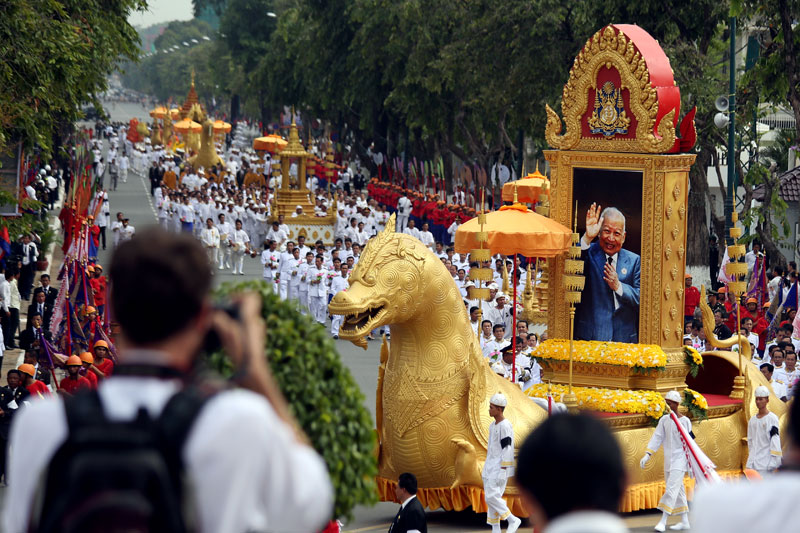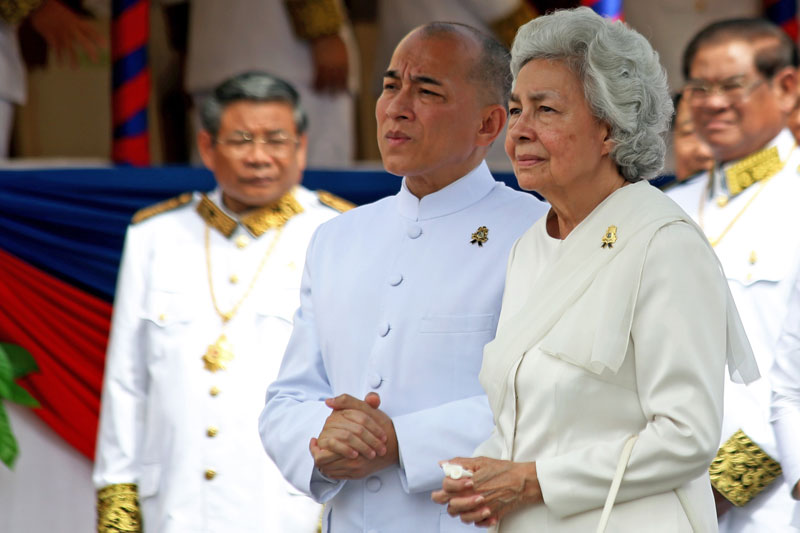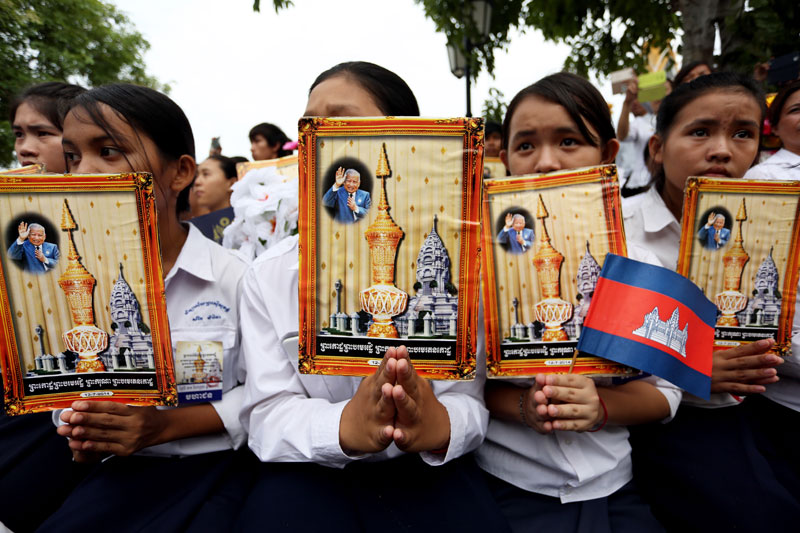The ashes of late King Father Norodom Sihanouk were paraded through Phnom Penh on Friday morning in an elaborate ceremony attended by royal palace representatives and government officials along with several thousand members of the public in a final farewell ahead of their interment on Saturday.
At 7:30 a.m., a 101-gun salute was fired to mark the start of the procession, which took about two hours and snaked down three of the city’s major boulevards in a journey similar to that of the return of the late King Father’s body from Beijing, where he died in October 2012.

Although public turnout was significantly lower than at the ceremonies marking the return of the late King Father’s body and cremation more than 100 days later, participants young and old held up flowers, flags and pictures of the late King Father smiling and waving.
“I wish the King Father’s soul will help take care of Cambodia,” said Guech Ly, 63. “So that we can have peace forever and both parties agree to join each other to develop the country.”
Although Friday’s parade was made up mostly of government officials, 25 elected lawmakers from the opposition CNRP, who are boycotting parliament, were invited to join senior CPP officials in paying their final respects to the late King Father.
Chor Sam Ol, 63, who came from Meanchey district to watch the parade, said through tears that she hopes the former king’s spirit can help bring the parties together to resolve their differences.
“I wish the King Father’s soul will take care of the children and I wish our Khmer people will not get into disputes with each other,” she said.

Waiting at the Royal Palace at the end of the parade were King Norodom Sihamoni and a tearful Queen Mother Norodom Monineath. They were joined in front of the palace by Prime Minister Hun Sen and other senior government officials, along with the CNRP contingent.
“Our participation is to show that we all respected the late king,” said Kem Sokha, vice president of the CNRP.
“I hope that [the deadlock] will be resolved,” he added. “There is no need to have the power in the hands of only one party like this—we want to have a multiparty democracy and fairness in the elections,” he said.
Interior Minister Sar Kheng, who has taken part in negotiations to end the deadlock, said that both parties needed to work together, but said that Friday’s ceremony was not the time to talk about the political impasse.
“It has not been discussed,” Mr. Kheng said. “We do not have time [today].”

Touch Naruth, chief of the Ministry of Interior’s bodyguard department, said the parade had proceeded without a hitch, and estimated that tens of thousands had attended.
Mr. Naruth said that the king, queen mother and prime minister would on Saturday take part in a Royal Palace ceremony to inter the late King Father’s ashes in a stupa at the Silver Pagoda.
“We will have a plan to allow the people to go to respect the late king’s soul in the Silver Pagoda,” he said.
Standing along the parade route, Nhov Nheun, 68, made the trip from Takeo province. She said that she hoped for a return to a society similar to that ruled by then-Prince Norodom Sihanouk in the 1960s.
“We cannot compare this regime with the previous regime,” she said. “Because now it is difficult to live because we are poor, but in the previous regime we had enough food to eat.”



